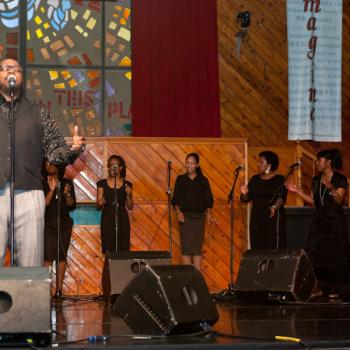
Struggling Churches Might Be Surprised
A Key Group for Churches
When I was younger, I worked in marketing and public relations after leaving a career in journalism. For a quarter of a century, I helped organizations within my company successfully market their services to the public. I’m retired now, but my mind kicks into marketing/PR mode when I hear about churches in my community and across the U.S. struggling to survive. But you don’t have to be a marketing expert to realize that millennials are a key group for churches.
Many churches aren’t connecting with millennials, in part, because they don’t understand them. The adage that says, “If we build it, they will come,” no longer applies when it comes to churches. The numerous almost-empty church buildings attest to that fact.
Gone are the days when churches opened their doors, sat back and watched people fill the pews. Churches that expect millennials to behave as previous generations behaved will eventually close their doors — some sooner than others.
So, what can 21st century churches do?
He Gets Us
A group of wealthy Christians understands the importance of millennials and has created a three-year, billion-dollar marketing campaign called He Gets Us to attract their attention. The “he” is, of course, Christ.
The campaign made headlines when television ads ran during this year’s Super Bowl for the tune of several million dollars per spot. The ads focus on issues that are important to millennials.
And although ordinary churches like yours and mine cannot come anywhere near the budget and scope of He Gets Us, church leaders might learn something from the ads.
Understand Your Audience
When you market most things — whether it’s healthcare, which was my specialty, a bar of soap or religion — you need to understand the audience you’re trying to reach.
Two important audiences for healthcare are women, who make most of the health-related decisions for a family, and doctors who make the referrals to specialists.
Women are also important when marketing products like soap. Like it or not, they do most of the grocery shopping and usually make the decisions about which products to buy.
We have identified millennials as an important group for churches, and I’m going to share some of the things that are important to them.
Doing Your Research
My earlier post on declining church attendance and the He Gets Us campaign, Selling Christ: Can ‘He Gets Us’ Get Results? looks at the positives and negatives of He Gets Us. To read it, click here.
Additionally, several organizations including the Pew Research Center, the Barna Group and the Case Foundation have studied millennials for a decade or longer and have some interesting findings about this generation.
The Barna Group, in particular, focuses on culture and religion, and its research might prove especially helpful to struggling churches. Barna’s research keeps in mind that millennials are a key group for churches.
Read more from the Pew Research Center by clicking here.
To read more from the Barna Group, click here.
Read about engaging millennials from the Case Foundation here.
What You Need to Know
One defining characteristic of millennials is that unlike older generations, millennials grew up with constantly changing technology. They are completely comfortable with smart phones, computers, the internet and other technologies and don’t panic when the inevitable updates occur.
But your church shouldn’t go high-tech simply because you want to attract millennials. If you use computer-related technologies, make sure you use them appropriately and in ways that add value to whatever you’re doing. Don’t use them for the sake of using them.
Millennials have learned to expect and adapt to change more easily than previous generations, and they aren’t wedded to tradition. Don’t ever tell them that your church does something “because we have always done it that way.” That mindset will send them running for your exits.
Another important characteristic is this generation’s determination to make a difference in the world. They have been called lazy, but they are actually civic-minded and quite driven. And they will not sit on the sidelines of your church for very long.
The millennial generation is also more open-minded than previous generations, which means they are more accepting of other races, religions, cultures and lifestyles including that of the LGBQT community.
When you think about these characteristics, watch the He Gets Us commercials again to see how the campaign puts millennials’ interests and values into action.
Millennials’ Priorities
With 80 million members strong, the millennial generation is a key group for churches and has become a force that religious organizations cannot ignore.
A recently released 10-year study of 150,000 millennials by the Case Foundation found that civil rights, racial discrimination, healthcare, education and jobs are extremely important to this generation.
“To a degree not seen in any previous generation, millennials see themselves in the shoes of others who don’t look like them, speak the same language, have the same education, or come from the same background,” the Case Foundation said.
Millennials tend to be activists. They are turned off by partisan politics and have little trust in the government’s ability to address issues such as poverty, race and culture, and student loans.
Despite this pessimism, they are generally optimistic about the future and are quite confident that their generation is already making a positive impact, even though the youngest millennials are only in their mid- to-late 20s.
They want to make a difference whether it’s in their community or their church.
They care about issues rather than institutions and are not particularly loyal to a specific church or denomination. If your church isn’t meeting their spiritual needs, they will move on without hesitation.
It’s also important to note that millennials “are not just more unaffiliated than their elders today but are also more unaffiliated than young people have been in recent decades.”
And a greater percentage – one-fourth – identify as atheist, agnostic or nothing in particular. These groups would probably be tough groups for churches to reach, while there are millions of millennials who are on the fence and would be more open to the Christian faith.
Millennials & God
“Younger Americans are deeply ambivalent about religious faith and attach little importance to the practices and truths of Christianity compared to generations before them,” according to Barna.
Pew’s research showed that “less than 50 percent of millennials say that religion is important to them or that church has a positive impact on the country.”
Young adults are more likely to see Jesus as human rather than divine, and most don’t see him as the way to reach heaven. Some believe that they will enter heaven because they’re “basically good people,” while a small number think they will go to heaven because they tried to obey the 10 commandments and an even smaller number said they won’t go to heaven at all.
Engaging Millennials
Despite being ambivalent about Christianity, the millennial generation seems open to the idea of God, with nearly three-fourths of millennials saying they are absolutely or fairly certain God exists, according to Pew.
A whopping 84 percent of participants in a 2015 Barna Group study said they value spiritual development, although they pray less often than older adults. But they share somewhat traditional beliefs about life after death, miracles and heaven and hell.
A Golden Opportunity
On a positive note, Barna reported in 2022 that “younger generations especially are re-engaging in church, a shift that might potentially mark a new chapter in church attendance.”
Attendance has actually increased since the pandemic, and non-white millennials are behind this change. As of 2022, 45 percent of non-white millennials said they attend church weekly, while 35 percent of white millennials said the same, according to Barna.
Whether your church is struggling to survive or trying to grow, you may want to embrace non-white millennials. Learn more from Barna here.
Read more from the Case Foundation here. and more from Pew Research here.
Millennials’ Needs
Millennials want authenticity and meaningful worship experiences. The facility in which services are held is not as important to them as the connections they make – whether it’s connections with God or connections with you and your congregation.
Other wants and needs are less obvious. They want…
- Opportunities to get involved in your church
- Opportunities to connect with older generations in mentoring relationships through church
- Opportunities to serve their community through church
- A place that offers quiet moments and spiritual rest as well as activity
- A mixture of traditional and modern elements
- And something that may seem trivial: A clear layout of the church with signage for facilities including restrooms
Learn More
You might learn more from these posts on Patheos:

















